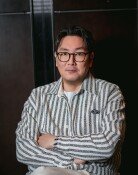[Opinion] New Cabinet, Don`t Make New Trouble
[Opinion] New Cabinet, Don`t Make New Trouble
Posted February. 01, 2002 09:43,
There has been a flood of criticism about the January 29th Cabinet and secretariat reshuffling in the Kim Dae-Jung administration. One had hoped that at least this time the crowd of incompetent appointees would be swept clean and their shortcomings replaced by transparency, professionalism, and political neutrality in the Cabinet and Cheong Wa Dae leadership. The result, however, was completely contrary to expectations. The majority of people feel that they cannot understand where the administration has put it priorities in running the country with a mere one year remaining in the term.
The biggest mistake of the Kim administration was changing ministers more frequently than any other administration and creating a national administration without consistency. In the four years since its inception, the administration has changed the Education minister and the Construction and Transportation minister 7 times, six times in the Unification, Justice, and Health and Welfare ministries, so that the average length of stay for these ministers were no more than 8 to 9 months. This is a record worthy of the Guiness Book of Records. The monarchical presidency failed to monitor adequately his personnel and led to such aborted ministerial office terms. When all sorts of corruption and policy malfunctions caused by incompetence began to surface and public opinion increasingly turned against the administration, it took dealt with the situation by repeating personnel reshuffling.
The failure in personnel management led to failure in policy which caused the loss of public confidence in the administration. It can be said that the mess in the medical insurance policy, which could be its greatest failure yet, and the college examination and other education policies were inevitable consequences of the administration`s personnel policy failure.
Early on, Yulgok Yi wrote in the definitive work on political theory of his time `Sung-Hak Jip Yo` that the first condition for the King to rule benevolently over the people is searching for the right persons and putting them in the right places. It is deplorable that the administration continues to shift its leadership at a whim when there is ceaseless competition among nations abroad, and when unemployment and pressure groups run over the country.
The 18th century Enlightenment thinker Montesquieu wrote on the decay of the principle of government in his `The Spirit of the Laws`, "When the `Principle of Government` becomes corrupt, even the best law becomes unjust and inflicts harm on the people. If, however, that Principle maintains its strength, even an unjust law has the effect of a just law and comforts the people." The `Principle of Government` mentioned here indicates the goal that political authorities promote in a positive fashion. The reason why there is so much noise over `governmental ambiguity` with regard to the recent reshuffling is because the reality is so far from President Kim Dae Jung`s promise of `distance from politics, total focus on national administration`.
The greatest concern to emerge from this reshuffling is how the administration will reform the culture of public officialdom, which has become a lake of lame ducks, and solve with integrity the mountainous pile of national problems. One worries whether public officials will fall in the deep pit of well-being built on inequality and idle security, and create a malfunctioning bureaucratic society where nothing works and everything is possible.
This recent reshuffling must not be abused as a weapon in the hands of a political faction who is solely interested in partisan issues and insists on reforming the political world according to the Cabinet system. Furthermore, quickly manufacturing whatever new policies what will only burden the next administration and using psychological maneuvers to give false expectations to the people must stop. To put it differently, the administration has to be content with the least of its goals rather than pursuing grand designs. The least of its policy goals is a way to minimize the damage that amateur ministers inflict on the nation.
Montesquieu said that unless a democratic government overcomes the vital weakness of political corruption, democracy would only harm the people: "When the persons who have the people`s trust try to conceal their own corruption by corrupting the people, the nation falls into great suffering." What is the adequate solution to reducing the widely spread corruption? Absolute power corrupts absolutely. The solution is to solidify a democracy with the rule of law, autonomous judiciary, free press, and a civil society that sincerely exercises its liberty and responsibilities.
Today`s statesmen must value with all their being the severe lesson of history which demands that the ruling party and the administration, which the public no longer trusts, accept their loss in the election according to the principles of democracy.
Park Eung-Kyuk (Hanyang University, President of the Graduate School of Local Autonomy, Administration Studies)







